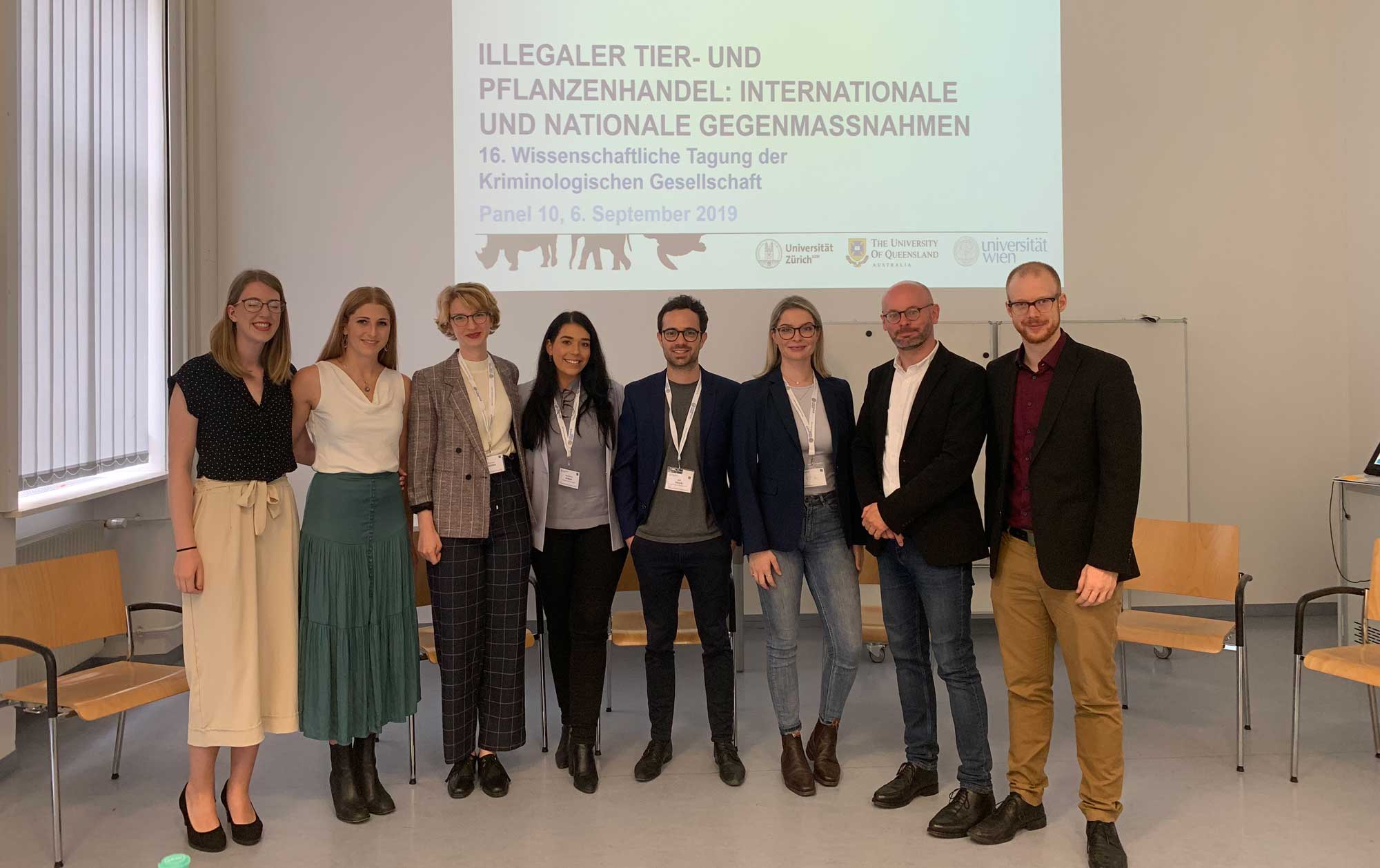Wildlife trafficking is a serious issue which threatens the existence of many species.
Wildlife Trafficking involves the taking, trading, importing, exporting, processing, possessing, obtaining, and consumption of wild animals, animal parts, and plants in contravention of international or national law. Wildlife trafficking accelerates the destruction of fauna, flora, forests, and other natural resources and contributes to environmental degradation.
The more endangered a species becomes, the greater is the commercial value that is put on the remaining specimen, increasing the incentive for further illegal activities.
Students at The University of Queensland Law School are helping teaching staff to tackle the nefarious issue of wildlife trafficking as part of an exciting program that is providing them with international opportunities, including the opportunity to present at an event in Vienna, Austria recently.
Over 90 minutes, the UQ students, Madeleine Pitman, Rory McFadden, Larissa Zeil-Rolfe, Ellie Conroy and Jack Fuller, presented their research findings at the conference in a session led by Professor Andreas Schloenhardt of the School of Law and Dr Gian Ege of the University of Zurich (pictured below).

The course that brought these students to Vienna, Transnational Organised Crime (LAWS5231), is a joint LLB elective course at The University of Queensland, the University of Vienna, the University of Zurich.
The Transnational Organised Crime course involves an international network of emerging and established scholars working within a structured research and learning framework to produce research outcomes on a topic of current, international concern.
"In 2018–19 the focus of this program was on trafficking in fauna and flora: the illegal trade in wildlife, animal parts, and plants. We are pleased to present some of the outcomes of this year-long research today, which will also feature in an edited book to be published later this year," Professor Schloenhardt said.
"The fact that some trade in fauna and flora is regulated while some trade is prohibited provides opportunities for circumventing relevant laws and regulations," Professor Schloenhardt said.
In their presentation, at the 16th bi-annual Conference of the Society of Criminology, the student team outlined some of the characteristics and drivers of wildlife trafficking.
Jack Fuller and Andreas Schloenhardt provided an overview of the demand that is driving wildlife trafficking.
Rory McFadden and Hanna-Sophia Feuerstein then outlined some of the trafficking methods, perpetrators and networks, before Theresia Angerer and Madeleine Pitman explained some of the existing international legal frameworks. Country examples of China and Australia are presented by Ellie Conroy and Larissa Zeil-Rolfe before Gian Ege made some final observations.
Research into wildlife trafficking will help governments to understand and tackle this complex issue Professor Schloenhardt said.
"The loss of income from the legal trade in plants, plant material, wildlife, and animal parts erodes the revenues of governments and undermines their ability to implement development programmes and strengthen the rule of law," Professor Schloenhardt said.
"Where it is linked to organised crime, violence, grand corruption, or armed conflict, trafficking in fauna and flora can destabilise national governments and threaten regional security."
Applications are currently open for enrolment in Transnational Organised Crime (LAWS5231) for Semester 1, 2020 and will close September 20, 2019. Students interested in undertaking this course should contact Andreas Schloenhardt for further information a.schloenhardt@uq.edu.au.



